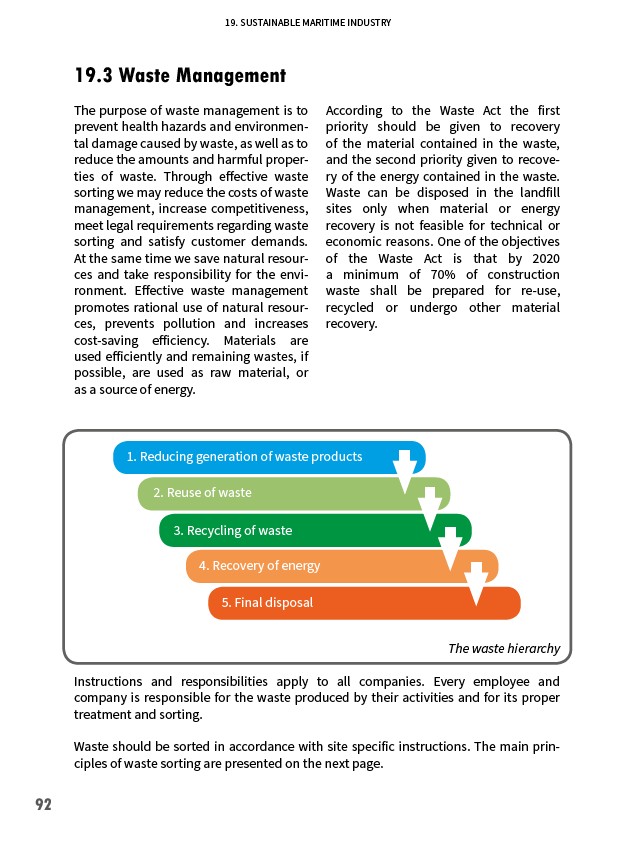
19. SUSTAINABLE MARITIME INDUSTRY
19.3 Waste Management
The purpose of waste management is to
prevent health hazards and environmental
damage caused by waste, as well as to
reduce the amounts and harmful properties
of waste. Through effective waste
sorting we may reduce the costs of waste
management, increase competitiveness,
meet legal requirements regarding waste
sorting and satisfy customer demands.
At the same time we save natural resources
and take responsibility for the environment.
Effective waste management
promotes rational use of natural resources,
prevents pollution and increases
cost-saving efficiency. Materials are
used efficiently and remaining wastes, if
possible, are used as raw material, or
as a source of energy.
According to the Waste Act the first
priority should be given to recovery
of the material contained in the waste,
and the second priority given to recovery
of the energy contained in the waste.
Waste can be disposed in the landfill
sites only when material or energy
recovery is not feasible for technical or
economic reasons. One of the objectives
of the Waste Act is that by 2020
a minimum of 70% of construction
waste shall be prepared for re-use,
recycled or undergo other material
recovery.
The waste hierarchy
1. Reducing generation of waste products
2. Reuse of waste
3. Recycling of waste
4. Recovery of energy
5. Final disposal
Instructions and responsibilities apply to all companies. Every employee and
company is responsible for the waste produced by their activities and for its proper
treatment and sorting.
Waste should be sorted in accordance with site specific instructions. The main principles
of waste sorting are presented on the next page.
92